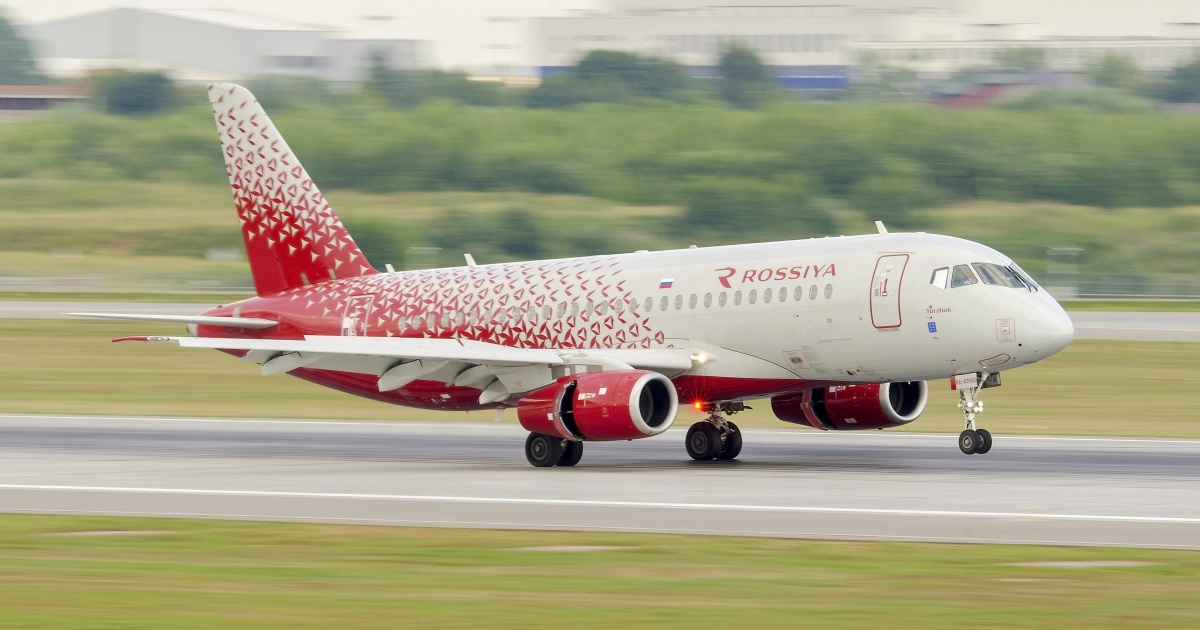
Related videos:
Two flight attendants from the airline Rossiya, identified as "Alexander" and "Boris," are at the center of a smuggling scandal after attempting to bring large quantities of Cuban tobacco into Russia.
The incident occurred after they both returned from a three-day vacation in Varadero.
According to a local news outlet, the crew members took advantage of their employment status to secure discounted tickets and fly to the Island, a popular destination for Russian tourists.
However, upon returning to Moscow, they attempted to go through the "green corridor" at the airport, which is reserved for passengers with no declared goods.
His behavior caught the attention of customs authorities, who conducted a routine inspection of his luggage.
The outcome was revealing: Boris was carrying 80 Cuban cigars, including a box of Habanos with 25 cigars, as well as other packages containing ten units each.
In total, the value of the products was estimated at over 130,000 rubles (about 1,230 dollars).
Alexander, for his part, was carrying 70 H. Upmann cigars, also divided into packages, with an approximate value of 180,000 rubles (around 1,702 dollars).
Legal implications and possible aggravating factors
Smuggling large quantities of tobacco is considered a serious crime in Russia.
According to Article 226.1 of the Penal Code of that country, the undeclared importation of strategic goods, such as tobacco, can result in penalties of up to seven years in prison.
Authorities have also noted the possibility of aggravating circumstances, as there are suspicions that this was not the first time the crew members engaged in such illegal activity.
In the Russian black market, Cuban cigars represent a profitable business.
It is estimated that transporting 50 cigars from Cuba can generate profits of up to $300, highlighting the motivation behind smuggling.
Cuban Customs in the Spotlight
The fact that the flight attendants managed to smuggle 150 cigars without being detected by Cuban customs raises serious doubts about the effectiveness of controls on the island.
Tobacco, one of Cuba's main exports, is often subject to strict scrutiny at customs due to its high value in international markets.
One possibility is that Boris and Alexander benefited from their status as airline staff, as crew members are usually subject to less rigorous inspections.
Another theory points to internal corruption, a persistent issue in a country where low wages may incentivize illicit practices. It is not ruled out that smugglers have bribed customs officials to ensure the smooth passage of goods.
Other cases of smuggling in Russia
This is not an isolated case. In recent months, Russian authorities have uncovered smuggling attempts ranging from branded clothing to valuable antiques.
According to the media outlet TURPROM, the so-called "shuttles" - passengers transporting contraband goods from abroad - have also been intercepted on multiple occasions.
In response to these incidents, Russia has intensified its customs controls at airports and ports. Trade restrictions and the economic situation have increased the frequency of smuggling, prompting authorities to bolster surveillance to combat these practices.
As of the closing of this report, the airline Rossiya has not released any official statements regarding the incident.
Frequently Asked Questions about the Smuggling of Cuban Cigars and Russian Tourism in Cuba
What happened to the Russian flight attendants accused of smuggling?
Two flight attendants from the Rossiya airline have been accused of smuggling after attempting to bring large quantities of undeclared Cuban cigars into Russia. This occurred upon their return from a vacation in Cuba, where they took advantage of their employment status to obtain discounted tickets.
What are the legal implications of tobacco smuggling in Russia?
Tobacco smuggling in Russia is considered a serious crime and can carry penalties of up to seven years in prison according to Article 226.1 of the Russian Penal Code. Additionally, authorities investigate potential aggravating circumstances, as those involved may have engaged in this illegal activity before.
Why is the effectiveness of the Cuban Customs questioned in this case of smuggling?
The capacity of the Cuban customs has been called into question after flight attendants managed to leave the island with 150 cigars undetected. This raises concerns about the effectiveness of controls in Cuba and suggests that they may have used their crew status to evade thorough inspections or even bribed customs personnel.
How has Russian tourism in Cuba grown in recent years?
Russian tourism in Cuba has seen a significant increase, with a growth of 141% in 2024 compared to the previous year. This rise is attributed to the Cuban government’s efforts to attract more Russian tourists and to promote Russian investments in the island's hotel sector.
What challenges does tourism in Cuba currently face?
Tourism in Cuba faces challenges such as deteriorating infrastructure and rising crime rates. Although Russian tourists represent a crucial market, these issues could negatively impact the perception of tourism on the island and deter future visits.
Filed under: